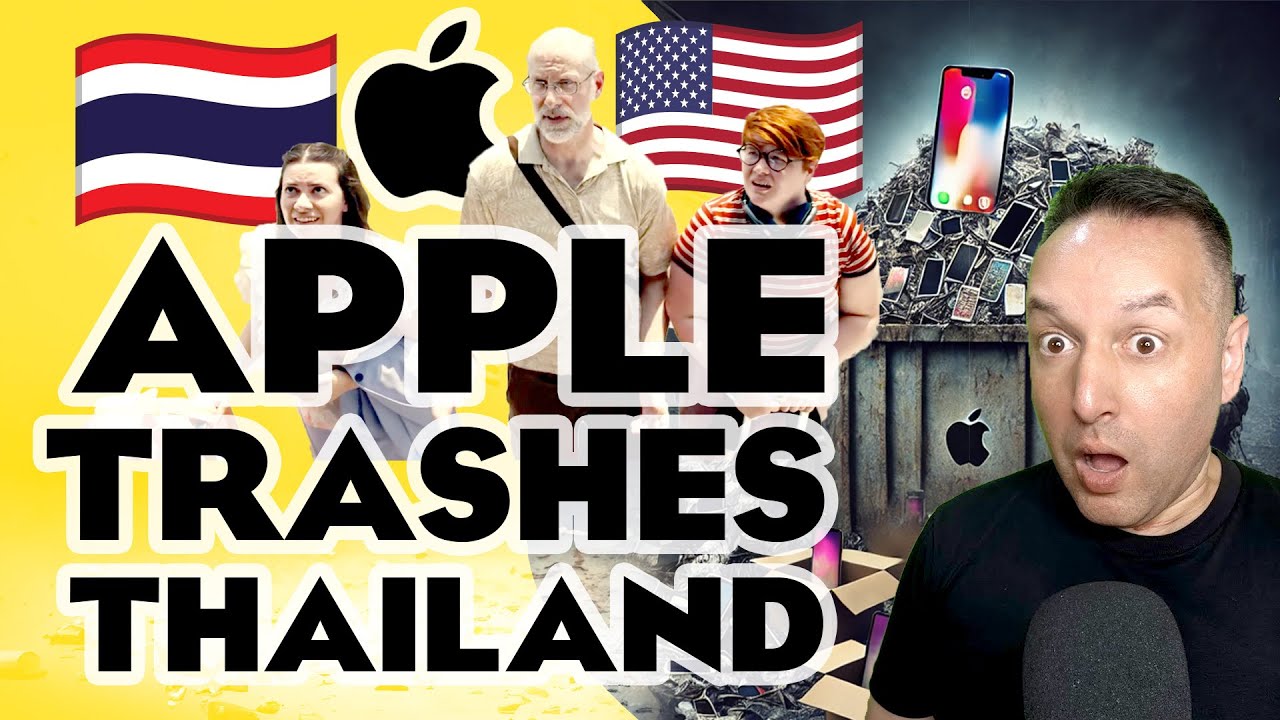Celebrity Chef Vikas Khanna slams BBC Racism: Goes Viral Again | Vantage with Palki Sharma
Summary
TLDRThe video highlights a 2020 interview with celebrity chef Vikas Khanna, where he called out a British journalist for perpetuating racist stereotypes about India during the pandemic. The journalist suggested Khanna's sense of hunger came from India due to his modest background, but Khanna responded by stating that his hunger stemmed from his experiences in New York. His response has resurfaced and gone viral, resonating with Indians who are frustrated by Western media's arrogance and constant misrepresentation of countries like India. The video critiques ongoing stereotypes and Western attitudes toward developing nations.
Takeaways
- 🌐 The saying 'the internet is forever' highlights how online content, once posted, can resurface at any time.
- 👨🍳 Celebrity chef Vikas Khanna, based in New York, went viral due to an interview from 2020 during the pandemic.
- 🍛 Khanna started the 'Feed India' initiative during the pandemic to help those in need, gaining global attention, including from the BBC.
- 🗣️ In the viral interview, a BBC journalist made a stereotypical comment implying Khanna, as an Indian, must have experienced hunger due to India's poverty.
- 💡 Khanna’s response refuted the stereotype, stating that his sense of hunger came from his experience in New York, not India, where his hometown Amritsar has a large community kitchen that feeds everyone.
- 🇮🇳 The response resonated with many Indians, highlighting frustration with Western arrogance and stereotypical views about India.
- 📰 This isn’t an isolated incident—similar instances have occurred, such as a New York Times cartoon in 2014 mocking India's space mission, which resurfaced during the Chandrayaan-3 mission.
- ✍️ Another example was a German publication’s racist depiction of India when it overtook China as the world’s most populous country.
- 🍽️ Khanna’s reply also pointed out that hunger is a significant issue in the U.S., affecting millions of Americans, including over 13 million children.
- 🚫 The Western media often downplays domestic issues like food insecurity, while perpetuating stereotypes about countries like India, and Khanna’s response called this out.
Q & A
Who is Vikas Khanna and why is he going viral again?
-Vikas Khanna is a celebrity chef based in New York. He is going viral again because of a 2020 interview where he responded to a stereotypical comment about India with a powerful statement, highlighting hunger in New York rather than India.
What was the context of the 2020 interview with Vikas Khanna?
-The interview took place during the peak of the COVID-19 pandemic when Vikas Khanna was leading an initiative called 'Feed India,' which coordinated a massive meal drive to help people in need in India.
What prompted Vikas Khanna's viral response during the interview?
-The interviewer made a stereotypical comment implying that because Khanna was not from a rich family in India, he must understand hunger. Vikas Khanna’s response, defending India and highlighting hunger in New York, went viral.
What was Vikas Khanna's key message in his response to the interviewer's stereotype?
-Khanna pointed out that his understanding of hunger came from New York, not India, as he grew up in Amritsar where the community kitchen feeds everyone. His reply challenged the stereotype that hunger and poverty are primarily Indian issues.
Why did Khanna’s statement resonate with the public four years later?
-His statement resonated because it addressed the Western tendency to stereotype India and other non-Western countries, while ignoring issues like food insecurity in the West itself. This has struck a chord with people who are tired of such condescending attitudes.
What were some examples of previous instances where India faced stereotypes from Western media?
-Examples include a 2014 cartoon by the New York Times when India planned a Mars mission and a 2023 cartoon by the German publication Der Spiegel when India overtook China as the world's most populous country. Both were seen as racist.
How does the script suggest Western media often portrays countries like India?
-The script suggests that Western media often portrays countries like India through stereotypes, such as assuming widespread hunger and poverty, while ignoring similar issues in their own countries.
What broader issue does Vikas Khanna’s response highlight about the Western portrayal of hunger?
-Khanna’s response highlights how Western countries tend to overlook significant issues like food insecurity in their own societies, instead focusing on problems in countries like India, perpetuating a biased narrative.
What impact did Khanna’s interview have in terms of challenging stereotypes?
-Khanna’s interview has been celebrated for calling out the absurd and racist stereotypes about India, shifting the conversation towards a more balanced understanding of global hunger issues.
Why might this interview go viral again in the future?
-The interview might go viral again because it taps into ongoing frustrations with Western arrogance and stereotypes about non-Western countries, making it a timeless critique of biased perceptions.
Outlines

Dieser Bereich ist nur für Premium-Benutzer verfügbar. Bitte führen Sie ein Upgrade durch, um auf diesen Abschnitt zuzugreifen.
Upgrade durchführenMindmap

Dieser Bereich ist nur für Premium-Benutzer verfügbar. Bitte führen Sie ein Upgrade durch, um auf diesen Abschnitt zuzugreifen.
Upgrade durchführenKeywords

Dieser Bereich ist nur für Premium-Benutzer verfügbar. Bitte führen Sie ein Upgrade durch, um auf diesen Abschnitt zuzugreifen.
Upgrade durchführenHighlights

Dieser Bereich ist nur für Premium-Benutzer verfügbar. Bitte führen Sie ein Upgrade durch, um auf diesen Abschnitt zuzugreifen.
Upgrade durchführenTranscripts

Dieser Bereich ist nur für Premium-Benutzer verfügbar. Bitte führen Sie ein Upgrade durch, um auf diesen Abschnitt zuzugreifen.
Upgrade durchführenWeitere ähnliche Videos ansehen

My Journey from Amritsar to Michelin Star | Vikas Khanna | TEDxGatewaySalon

Kerbens | 28 Moments of Black Canadian History | Slavery in Canada

A NOVA VIDA DO GOLEIRO ARANHA, EX-SANTOS, PALMEIRAS E PONTE!

OUTRAGE: Clueless, Woke Apple Trashes Thailand, Asia; Market Retaliates - Sales set to Nosedive

How the media shapes the way we view the world - BBC REEL

Bitcoiners Calling Out Other Bitcoiners
5.0 / 5 (0 votes)
